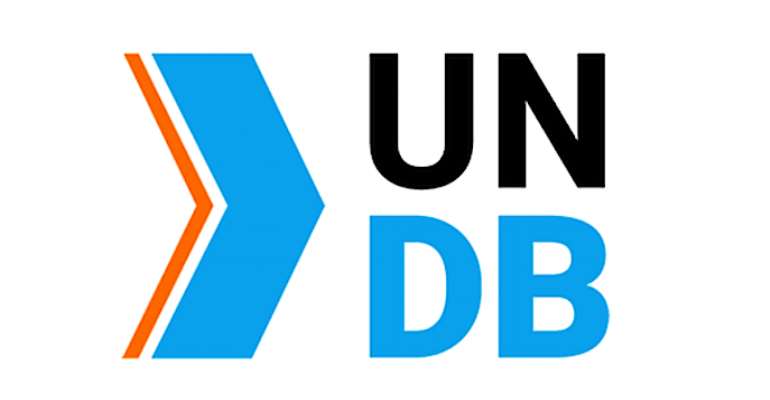A Call For African Businesses To Join Global Public Procurement Market

UNDB is offering Africa Renewal e-newsletter subscribers a month-free trial subscription to this $90 billion public procurement platform. To take advantage of the offer, members should write to [email protected] with the subject line “AR Free Trial” no later than 31 December 2022. No financial obligation is required.
As Africa continues to grapple with a myriad of challenges, several continental and broader international efforts have focused on not only helping countries get out of economic challenges, but to reach their aspirations for prosperous lives for their people.
In 1989, the UN proclaimed 20 November as ‘Africa Industrialization Day’ to raise awareness and mobilise international commitment for the continent’s industrialization.
The UN recognizes that “industrialization, with strong linkages to domestic economies, will help African countries achieve high growth rates, diversify their economies and reduce their exposure to external shocks. This will substantially contribute to poverty eradication through employment and wealth creation.”
Against this backdrop, every UN Secretary-General has urged all parties to ramp up their efforts to increase the capacity of homegrown African companies to successfully bid on development projects in their own back yards.
Public procurement accounts for a substantial portion of global GDP, and therefore the UN and the World Bank joined forces to establish a publication called the United Nations Development Business (UNDB) - a one-stop shop for major global procurement information for development banks such as the World Bank itself, the African Development Bank (AfDB), the Millennium Challenge Account, Islamic Development Bank, Arab Bank for Economic Development in Africa, and others.
UNDB is tasked with spreading the word among private sector companies about development projects being undertaken, with the goal of attracting the best price, highest quality service and unparalleled efficiency and expertise.
UNDB launched as a biweekly print publication in 1978 and has now evolved to a dynamic online platform serving companies from more than 150 countries and every procurement dissemination market.
Development Banks, non-governmental organizations, governments (particularly in developing countries) and UN agencies rely on UNDB to promote their procurement information.
The platform supports transparent and inclusive public procurement. UNDB has worked with partners committed to furthering women’s economic empowerment in Africa and in other regions, aiming to encourage women-owned businesses to engage in international development projects. For small and medium-sized enterprises, UNDB keeps them apprised of any sub-contracting opportunities through its contract awards listings.
Additionally, UNDB provides substantive support to the UN Secretary-General’s High-Level Panel on Women’s Economic Empowerment. The panel recognizes the opportunities to “create economic opportunities for women and accelerate progress towards women’s economic empowerment through their employment and procurement practices.”
To expand the participation of African companies in the public procurement marketplace and to complement its long-standing collaboration with the AfDB, UNDB has established a partnership with the African Union (AU) and is in the process of doing the same with the East African Development Bank, the Development Bank of South Africa, and the South African bureau of the New Development Bank.
In 2021, for example, UNDB published 240 notices announcing contract opportunities in projects funded solely or partly by the AU. Most of them sought to retain the services of consultants specializing in public sector management and governance. In so doing, UNDB assisted the region in attracting the best expertise for critical public sector reform.
The platform is keen on raising greater awareness in sub-Saharan Africa of the vast opportunities taking place on the continent.
While close to 30 per cent of all projects (e.g. by the World Bank, AfDB, Millennium Challenge Account, Islamic Development Bank, Arab Bank for Economic Development in Africa) are conducted in Africa, only 1 per cent of UNDB’s clients are from the region. Some of these clients represent branches of multinational organizations in the region, as opposed to locally established businesses.
For decades, there have been many noteworthy African consultancies successfully navigating the public procurement market. In South Africa and Kenya, in particular, there is a well-developed local network for consultancies. Historically, the largest number of subscribers to UNDB from sub-Saharan Africa has come from these two countries.
Some UN entities also provide support to African companies that need capacity development to enter the competitive and highly skilled public procurement market. The United Nations Development Programme and the United Nations Institute for Training and Research offer training programmes on how one can register for the opportunities, and on how companies can respond to an invitation to bid or a request for proposals.
Many companies and consultants are already prepared to assume sub-contracting opportunities or form consortia with big multinationals.
It is here that UNDB comes in handy as a globally recognized platform endorsed by multilateral development banks, offering all the information needed to partake in the multi-billion-dollar business of national development.
All African entrepreneurs, government agencies and non-governmental organizations are invited to get on board by publishing their tenders and contract awards with UNDB.
Diverse content from local entities will have a multiplier effect on local engagement by the private sector.
For a limited time, UNDB, in collaboration with Africa Renewal, is offering Africa Renewal newsletter members a month free trial subscription to this $90 billion public procurement platform. To take advantage of the offer, members should write to [email protected] with the subject line “AR Free Trial” no later than 31 December 2022. No financial obligation is required.
- To learn more about the service, please visit https://devbusiness.un.org/
For more information on COVID-19, visit www.un.org/coronavirus
